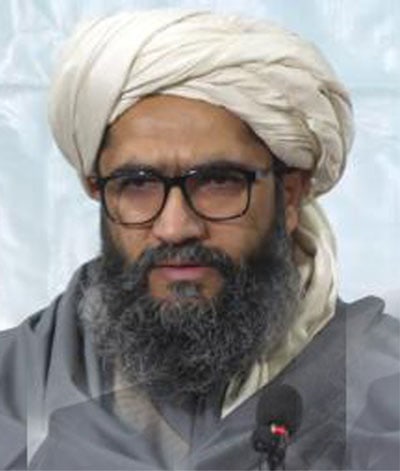Lutfullah Khairkhwa, deputy minister of Higher Education, said in a conference in Kabul that the fourth-year’s courses (semesters 7-8) of public universities will begin in the coming 15 days.
The deputy minister said preparations have been made to reopen public universities in the country.
“In 10 to 15 days, you will witness the beginning of students’ courses that are in the last semesters,” he said.
Khairkhwa denied rumors that legal and political departments have been abolished from the country’s education system, but says that the Islamic Emirate is against the way of teaching which has been done in universities in the past twenty years. “Regarding the faculties, I have to say that no faculty will be abolished,” he said.
The deputy minister called on lecturers who have left Afghanistan to come back and cooperate with the Ministry of Higher Education in building the country’s education system.
Meanwhile, some of the students called on the Ministry of Higher Education to open the doors of public universities as soon as possible.
“It has been over a year that universities have been closed. We ask the Islamic Emirate to reopen universities for the students so they can continue their education,” said Nasir, a university student.
Khairkhwa’s remarks follow an announcement a few days ago by the acting minister of higher education saying that public universities will soon reopen.
Meanwhile, as government started issuing diplomas for graduates of private higher education institutions, more than 460 students of a private university received their diplomas.
The students were graduated from bachelor and master’s classes from a private higher education institution in Kabul.
The students were graduated in previous years but they did not receive their diplomas as government banned the process due to certain issues.
“In today’s ceremony, diplomas were issued for 465 graduates of whom 106 are master of business administration graduates,” Zahir Ayubi, spokesman of Kardan University said.
Higher Education Minister Najibullah Khawja Omari said private higher education institutions are convincing in terms of quantity, but are low and worrying in terms of quality.
“The countries that see the educational institutions as infrastructures and expect long-term results, have been able to gain good positions in the world’s economic and political system,” said Omari.
He said more higher education opportunity has been provided for youths and that they should leave no stone unturned to increase their capacity.
Some of the graduates said there are more employment opportunities for private universities graduates in the job market.
“The private institutions provide additional programs to students besides that they help the graduates to find job,” Roeena Sediqqi, a university graduate.
“In the last year of university, the students are introduced to a private, government or semi-government institution and they start practical work in Kabul or other provinces,” Ghiyas Sadaat, a master’s degree holder said.










